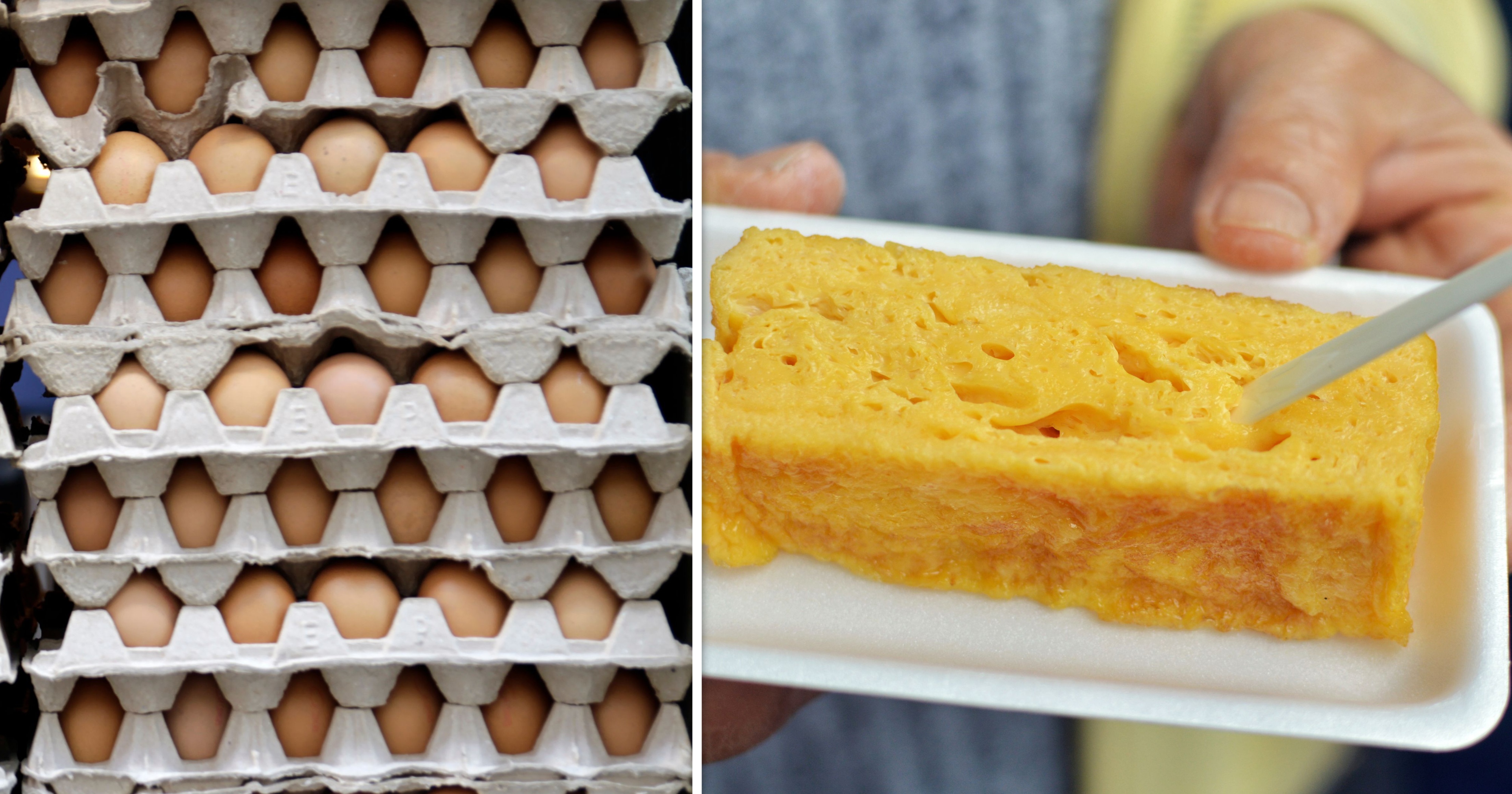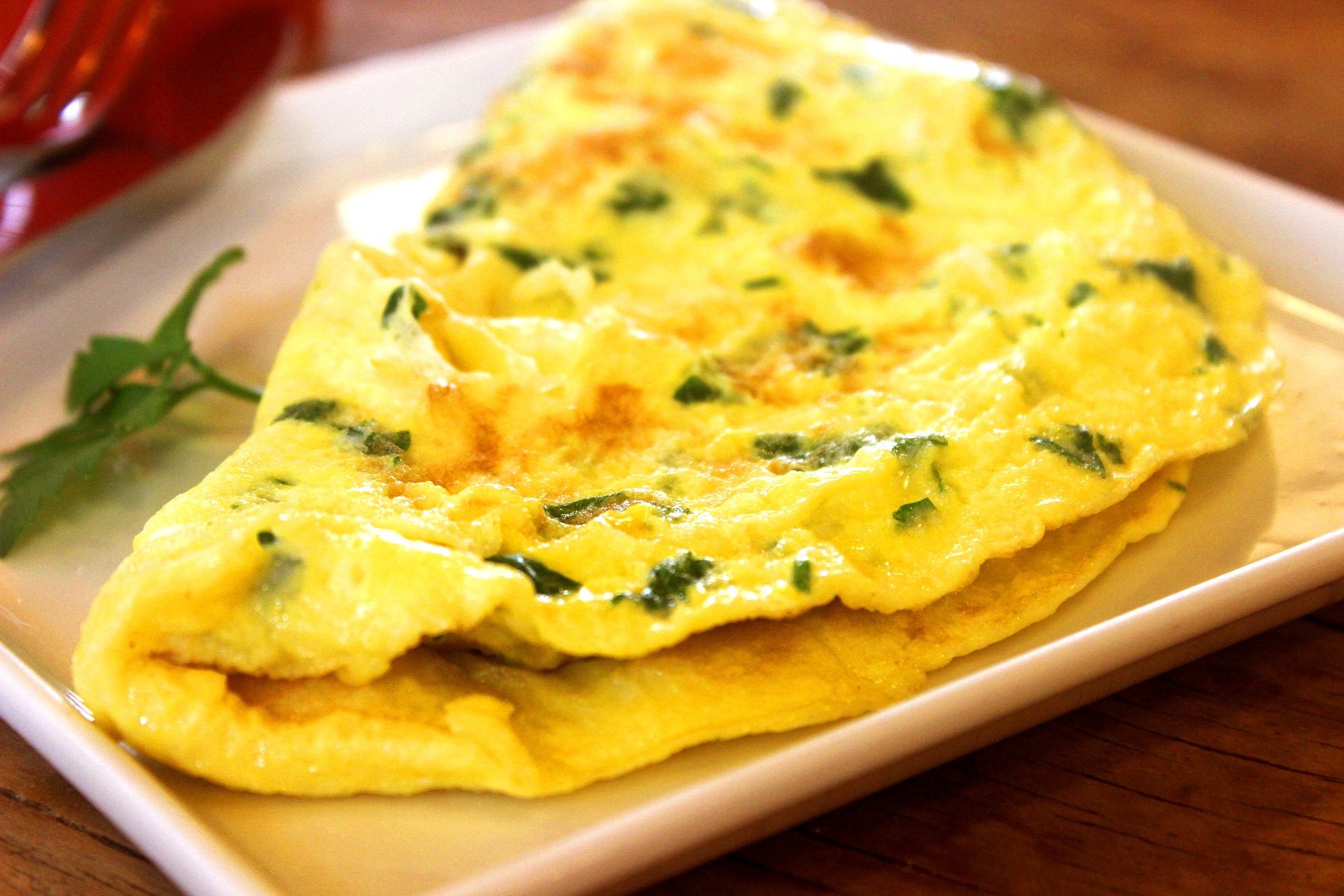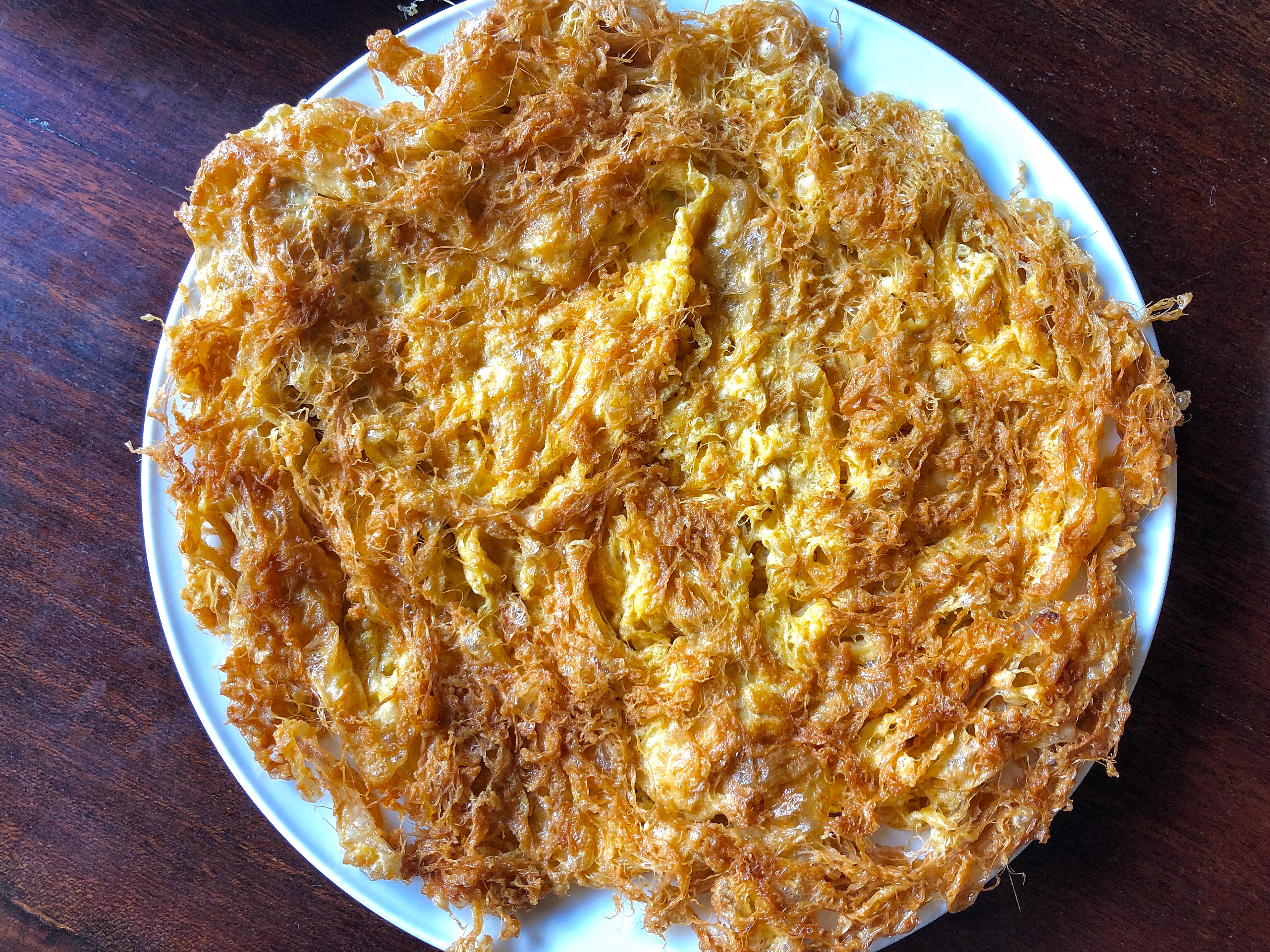Eggs are amazing.
This man can testify to it.
The variety of egg dishes is also absolutely outstanding. Apart from the already varied scrambled, sunny-side, poached iterations, there are also some egg dishes unique to certain countries.Thai omelette
Here’s an omelette.
An omelette made Thai-style is slightly different. The more traditional French omelettes are creamy and smooth, the Thai omelette is noticeably crispier.
While they are both considered rather fluffy, the cooking styles are quite different.
Also, western omelettes are often served as breakfast items, Thai omelettes however are used more as rice toppers.
Both delicious though. Other nice little egg dishes include Kai Look Keuy, Son-in-law eggs, which is basically boiled eggs that are deep fried.
Tamagoyaki
Continuing on with the omelettes from around the world theme, tamagoyaki is made by rolling together several layers of cooked egg.
It has a sweet, light flavour, and is perhaps best known as that little strip on the sushi you find in supermarkets here.
Hrudka
Now for the more obscure egg-based dish. While you might have encountered the rest of the aforementioned egg dishes in a food court somewhere, this might not be available at your local Koufu.
A hrudka is an egg-based cheese that some Ukrainians and other Eastern Europeans consider an Easter tradition. According to this AP article, Hrudka is a cheese made out of two dozen eggs, a quart of milk and a lot of patience.
Yum.
All those egg dishes require one fundamental ingredient. Eggs, like a lot of eggs.
Diversific-egg-tion
Singapore imports a lot of food products, and the Singapore Food Agency (SFA) puts the number at over 90 per cent. So it’s not really a surprise that the majority of our egg supply comes from overseas sources.
What might be a surprise is that the eggs aren’t purely from a solitary source. You might think Malaysia is the sole source of eggs rolling into Singapore, and while a significant portion comes from across the causeway, they are not our only source of eggs.
And it’s a good thing we’re not entirely dependent on one single country for egg imports, because an unforeseen crisis like the avian flu outbreak in 2004 led to a ban on eggs from Malaysia, which resulted in plenty of scrambling. Both in terms of prices and diversification of sources.
Singapore has come a long way since then though. In fact, every single country mentioned above (Ukraine, Japan, Thailand etc.) exports eggs to Singapore.
Singapore is also importing eggs from eight countries, up from three in 2015, and produces eggs locally as well.
One of the more recent attempts at diversification came in the form of Ukraine, which was accredited as an egg source in December 2018.
As of October this year, close to 30 million eggs have come from non-conventional sources (Malaysia or Singapore). This is up from just four million back in 2015.
In fact, by 2017, the eggs imported from Thailand alone was already more than four million.
In support of efforts to diversify, FairPrice has also started stocking Korean eggs for the first time since South Korea was reinstated as an accredited egg import source in December 2018, after the resolution of the bird flu outbreak.
But these efforts would be for naught without other measures to drive diversification. Earlier this year, SFA introduced new licensing requirements for egg importers to adopt business continuity plans (BCPs).
Importing eggs from a diversified range of sources is one of the strategies that importers can adopt as part of their BCPs, so as to improve the resilience of our egg supply. Importers will only be granted licences if their BCPs are satisfactory.
All this is to ensure that food disruptions from any one country, should they occur, will have minimal impact on our food supply.
For example, just last year, Malaysia said it was considering limiting exports of eggs to other countries, including Singapore. No need to walk on eggshells when we have quite a few baskets full of eggs.
Images via Getty
This sponsored article by SFA omelettes the writer make puns
If you like what you read, follow us on Facebook, Instagram, Twitter and Telegram to get the latest updates.




